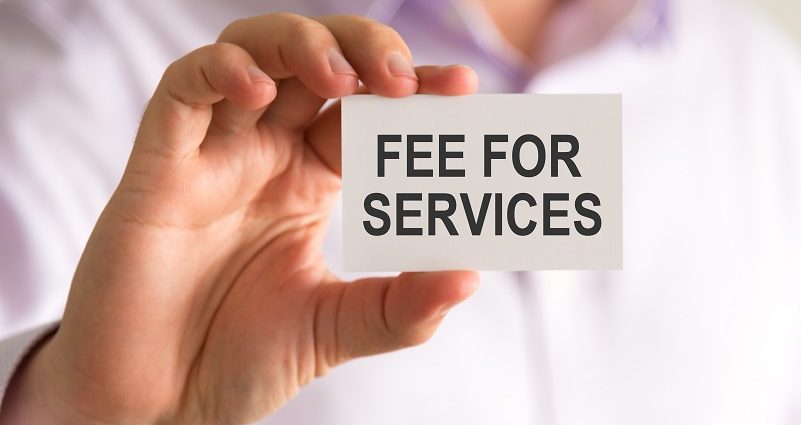Fee for Service Dentistry

Fee for service dentistry provides people with high quality, appropriate treatment for their needs in exchange for a fair fee considering the time, care, skill, judgment and materials required to render that treatment.
Fee for service dentistry is not based on a fixed fee delivery system (such as a Preferred Provider Organization) that predetermines what the fee should be or how treatment should be rendered (which some insurance companies or managed care plans dictate).
In a fee for service dentistry practice, the dentist expects to be paid the quoted fee for services and treatments at the time of service, unless other arrangements have been made.
Do Fee for Service Dentists Accept Dental Insurance?
Fee for service dentists accept most dental insurance benefits. However, depending on your dentist’s payment policy, you may be required to pay the full fee at the time of service, regardless of whether your dental insurance approves of or covers them. Your dentist could also require that you pay for treatment costs at the time of service and be reimbursed by your insurance company later. In some cases, you could be allowed to pay your copayment after the insurance portion has been estimated. In this case, the insurance company will send the insurance portion to the provider.
Many patients with dental insurance are not aware that they can choose a fee for service dentist – or a dentist not within their network – without having to absorb the entire cost of treatment themselves, depending upon what their coverage allows. Also, recently insured people may leave a trusted dentist to go to a participating provider because they are unaware that they have an option to choose their own dentist. However, this may not always be the case when the insurance is a PPO or managed care dental plan.
Choosing Fee for Service Dentistry
Fee for service dentistry enables you to choose the dentist you want for your treatment, rather than be restricted to those dentists who have agreed to accept the insurer’s fee schedule in an insurance plan or predetermined network.
If you require the services of a specialist such as a periodontist or endodontist, and have been given a specific referral or recommendation from your plan’s general dentist, you may be permitted to see a specialist who is not part of your plan’s network.
If you do not have dental insurance, there are no drawbacks to going to a fee for service dentist.
However, if you do have dental insurance and are considering a fee for service dentist, you can expect to pay slightly higher fees than if you went to a dentist participating in your plan.
For example, if a patient had a root canal with a fee of $1,000 and the insurance company paid 80 percent, the patient would end up paying a little more than their usual 20 percent copayment with a fee for service dentist. This is because the insurance company pays 80 percent of a set fee (which is generally lower than the fees of most fee for service dentists) that is predetermined and established by the insurance company.
For example, in a PPO or managed care dental plan, the dental insurance company has contracted a fee schedule with the dentist, who generally has an agreement with the insurance company to write off the difference in charges without charging the patient any additional out-of-pocket expense. If a patient with a PPO or managed care plan chooses to see a fee for service dentist, they will more than likely have additional out-of-pocket expenses.
Paying for Fee for Service Treatment
Patients who undergo dental treatment from a participating provider have the advantage of knowing exactly what to expect as far as out of pocket expenses. In-network or participating providers must adhere to predetermined fees.
With fee for service dentistry, dentists determine their own fees for dental procedures. Patients receiving a proposed treatment plan for dental services have no way of knowing if the estimated fees are fair and reasonable. However, most dentists’ fees are consistent within the same geographical locations.
Patients who choose a fee for service dentist can obtain a pre-estimate for dental work, which is submitted to the insurance company and can provide an indication of what would be needed up front before beginning treatment.
In a fee for service model, you pay the entire fee for the dental procedure up front or the portion of the fee that is not covered by your dental insurance. Dental financing may be available to help you manage your out-of-pocket expenses.
Next, go to:





